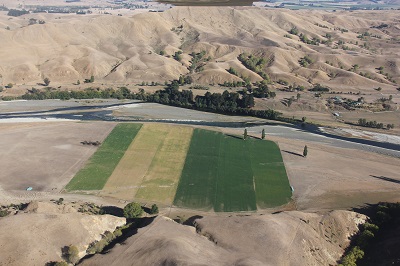I want to...
Current filter: Most popular
A to Z
Apply for a job
Biosecurity
Consents
Consultation
Contact Us
Environmental Data
Farmers Hub
Fix it or Report it
Information Request
Join an Event
Leasehold Land
Meetings
Rates
Water Metering
Have Your Say
Challenges for CHB water storage highlighted
Published: 2 September 2020

Hawke’s Bay Regional Council is focusing its accelerated Water Security Programme on trialling below ground Managed Aquifer Recharge technology in the absence of viable above ground options in Central Hawke’s Bay.
The Regional Council’s Corporate and Strategic committee today considered the report from the PGF Water Security workstream on possible above ground water storage options for water security in CHB.
Regional Council Water Security Manager, Tom Skerman, says the analysis of options included some work reviewing the issues and options from a local perspective via the Tukituki Leaders Forum, but ultimately the work did not identify an above ground storage option that is sufficiently viable to progress to development at this time.
“The Tukituki Leaders Forum considered this issue at length, with support from the Central Hawke’s Bay District Council. Having reviewed its findings, there are no immediately obvious legally or commercially viable options that warrant detailed technical investigation at this time,” he says.
“This process has confirmed what our investigations have told us for a long time now – that above ground water storage options in CHB is incredibly challenging and we need to look at every other option to improve the region’s water security.
“At the same time we will undertake further cost-benefit analysis of possible small to medium-scale storage sites before any final recommendations around storage in CHB.”
Mr Skerman says a comprehensive Regional Water Assessment has kicked off which will provide the region with the first comprehensive stock-take of the whole of Hawke’s Bay’s water resources, including supply and demand dynamics and means by which to improve security.
“There is no single bullet for Hawke’s Bay’s water challenges. Every possible option is now being considered, from below ground Managed Aquifer Recharge, to above ground storage where it can work, to water conservation, alternative farming systems and land use change,” he says.
Mr Skerman says the Regional Council is taking an integrated, holistic focus on what it can achieve to deliver better social and environmental outcomes for the whole of Hawke’s Bay through the way it manages water resources.
“We are progressing MAR studies in CHB and intend to conduct field trials early next year. Notwithstanding its sucessful use overseas, MAR is a relatively new approach in New Zealand. So the use of MAR must not only be technically viable but needs to have broad community support, and we will be testing both in the months ahead.
“We are making good progress on our water security programme and will be in a position to hold an informed conversation with all ratepayers from across Hawke’s Bay around possible options for development next year before decisions are made,” says Mr Skerman.
Disclaimers and Copyright
While every endeavour has been taken by the Hawke's Bay Regional Council to ensure that the information on this website is
accurate and up to date, Hawke's Bay Regional Council shall not be liable for any loss suffered through the use, directly or indirectly, of information on this website. Information contained has been assembled in good faith.
Some of the information available in this site is from the New Zealand Public domain and supplied by relevant
government agencies. Hawke's Bay Regional Council cannot accept any liability for its accuracy or content.
Portions of the information and material on this site, including data, pages, documents, online
graphics and images are protected by copyright, unless specifically notified to the contrary. Externally sourced
information or material is copyright to the respective provider.
© Hawke's Bay Regional Council - www.hbrc.govt.nz / +64 6 835 9200 / info@hbrc.govt.nz


